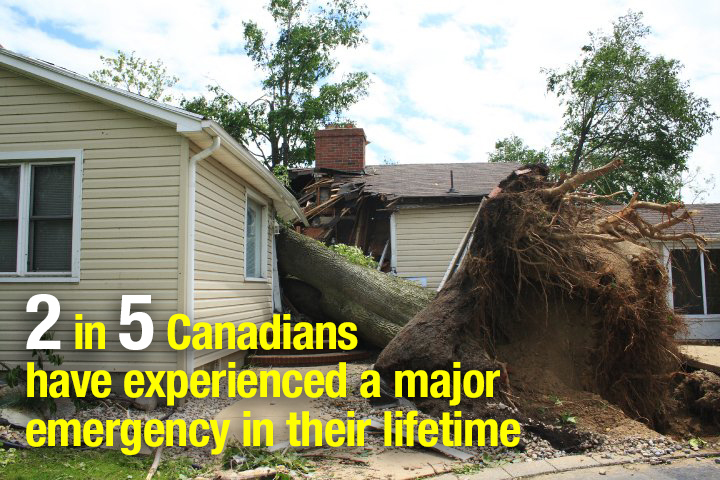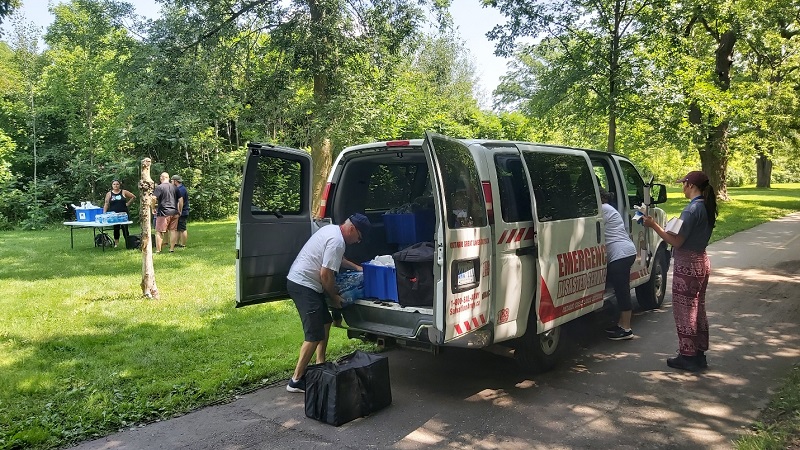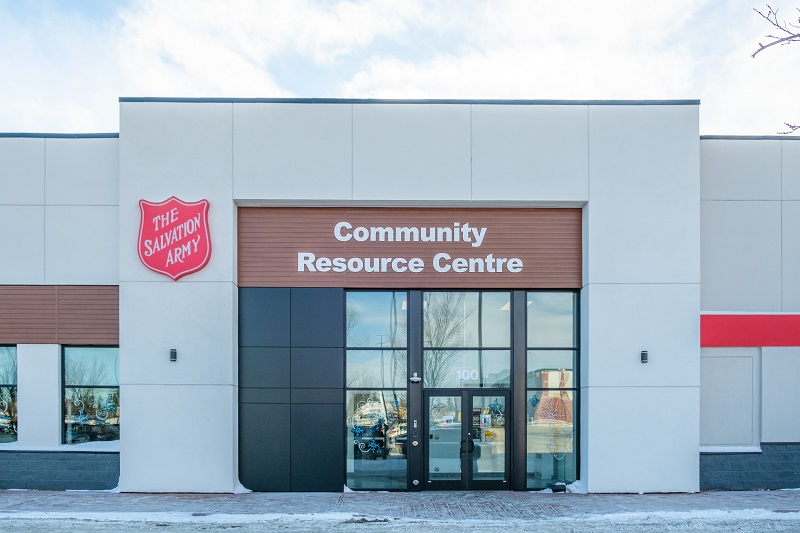Are You Prepared for an Emergency?

In October, 2016, when Sydney, N.S. was flooded after a record 225 mm of rain fell in one day, Captain Corey Vincent was grateful he’d educated himself about emergency preparedness.
“My own basement was flooded,” says Vincent. “Contractors came quickly to hook up pumps that drained away the water. I was fortunate I didn’t have to leave my home, but I was prepared if I had to.”
Emergency Preparedness Week, May 7-13, is meant to help Canadians take action to protect themselves and their families during emergencies.
“We know disaster happens,” says Vincent. “As Canadians we are no strangers to natural disasters such as tornadoes, winter storms, floods or hurricanes.”
A Salvation Army pastor, Captain Vincent has also served on the front lines of disaster for 15 years when The Salvation Army is called upon to support first responders and survivors.
“It’s important to educate yourself about being prepared,” says Vincent. “That’s the best way to protect your family and home.”
Vincent suggests that a good start would be to sit with your family to develop a plan should you have to flee your home. He says you should be aware of your city’s emergency plan and contact your province or territory’s Emergency Measures Organization (EMO) to find out what to do to be prepared.
“These are important conversations,” says Vincent. “In the event of a crisis situation, being prepared will save you a lot of stress and burden.”
“It’s impossible to prevent all disaster from happening,” says Perron Goodyear, Territorial Emergency Disaster Services Director for The Salvation Army. “However, we can all do things to help mitigate the impacts of disaster.
“In order to be more resilient as individuals and communities it is critical that all Canadians take three important steps. 1. Plan: develop an emergency plan for your family. 2. Prepare: make or buy an emergency kit and be prepared to be self-sufficient for at least 72 hours. 3. Be Aware: know what the risks are in your community.”
For more information on Salvation Army Emergency Disaster Services, click here.
For more information on preparing a family emergency kit, click here.



